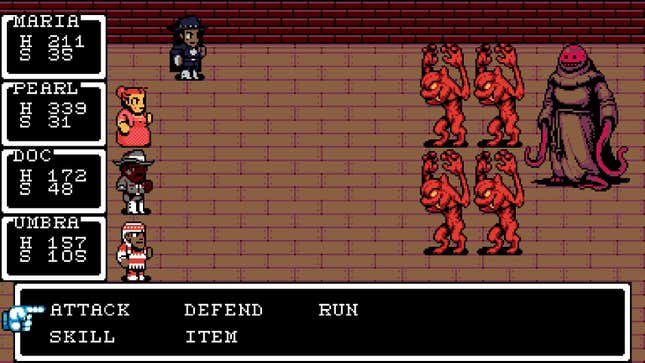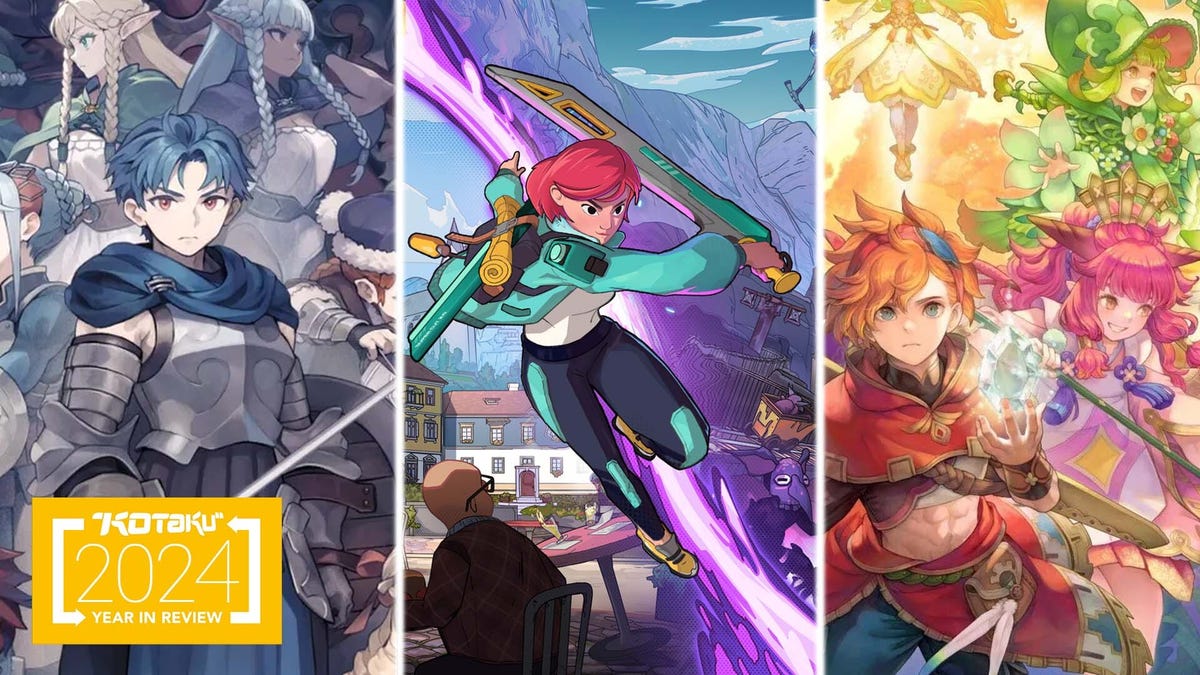
Amid UFO 50’s bounty of games from a fictional developer of the 1980s is Grimstone, a JRPG that’s aesthetically and mechanically akin to games of the era like the original Final Fantasy and Dragon Quest but that also distinguishes itself in some important ways. It eschews the fantasy settings that dominated the genre then (and the sci-fi ones, too—I didn’t forget about you, Phantasy Star) for its own distinctive world, one with archetypes and imagery rooted in Westerns but with some horror-adjacent elements as well. Of course, there are the monsters and demons running rampant in the world, but there’s also the fact that the world’s currency is teeth, a detail which continually unnerved me across my ~15 hours with the game.
I’ve seen people complain that Grimstone is “poorly designed,” they feel, because it doesn’t tell you what the different items you find throughout do. That’s a valid argument, I suppose, but part of what I loved about Grimstone—and indeed, about UFO 50 in its entirety—was the way I was encouraged to experiment, to push up against the limitations of games and see what the rules of their different worlds were. It’s a type of discovery that once felt common in games—many people my age, I think, know the feeling of encountering an opaque game on a relative’s computer, or being left alone with grandpa’s Intellivision—but that’s become increasingly rare as more and more games build thorough instructions into the games themselves rather than expecting you to keep a manual on hand. That sense of progress and discovery never flagged during my time with Grimstone—finding each new town where I could rest at the inn was always a huge relief; conquering each new dungeon was always a thrill; scoring cool new weapons and spells was always a great reward for my efforts. And while Grimstone’s storytelling is fairly minimal by today’s standards, discovering the truth about its world was exciting, particularly because that world is so distinct from the worlds of the actual 1980s JRPGs I’ve played. Not unlike my time with Final Fantasy I’s pixel remaster a few years back, playing Grimstone was a terrific reminder that distilling the genre down to its fundamental essence and giving us just enough detail for our imaginations to do most of the work of bringing a world to life can still be a wonderfully captivating approach for a role-playing game. — Carolyn Petit

